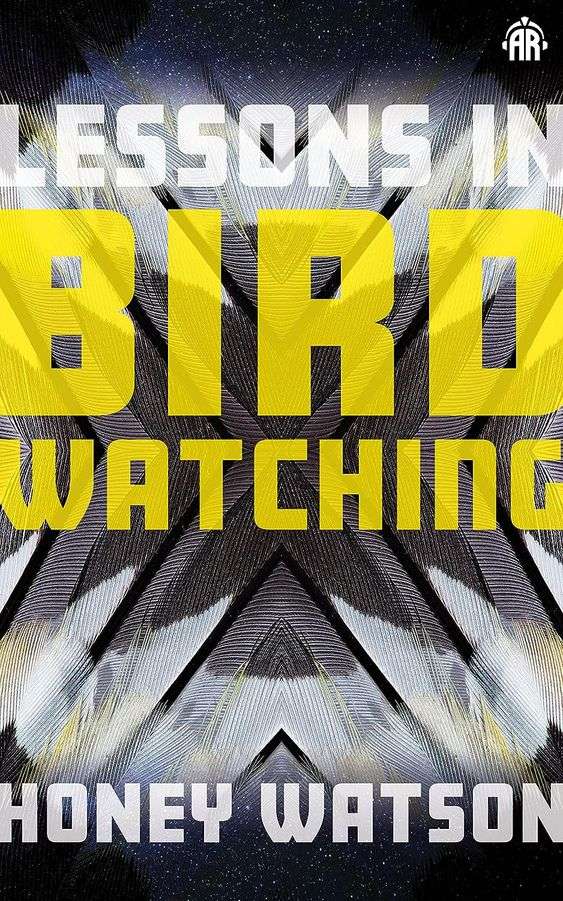We’ve implemented some new protocols around sending us messages via this website. Please email website “at” britishfantasysociety “dot” org for any issues.

For all things fantasy, horror, and speculative fiction
-
Announcement:

Lessons in Birdwatching
Lessons in Birdwatching by Honey Watson from @AngryRobotBooks #BookReview #Scifi
Lessons in Birdwatching by Honey Watson
Angry Robot Books, £9.99
Reviewed by Nadya Mercik

Apechi isn’t part of the Crysthian Empire. Yet. But they’d love to be. Their aristocrats grow up with the Crysthian language; their people try to imitate their fashion and their architecture; they envy other aliens who were taken into the empire.
Crysthians are curious and apprehensive of the recently found planet because it has magic. Apechi magic might not be so potent anymore; it doesn’t take the lives of many children as it used to. Still having spread through the galaxy, Crysthians mistrust anything they classify as magic and deities. Besides, Apechi, though appearing thoroughly human, have a rather weird worldview based on visions of the future they have.
Five students, led by Wilhelmina Ming and belonging to different Crysthian factions, are stationed in Lon Apech to study the planet. They’ve been additionally tasked to help locals dispense justice in a mixture of Apechi and Crysthian fashion. This drives them almost mad since violence is kind of Apechi thing. They resort to drugs, alcohol and sex to try and stay sane on this planet.
After one of the trials they take part in, they find the body of the witness impaled on the pagoda they live in. Soon after, the young woman whom the Apechi leader fancies is murdered and put on display. Five Crysthian students get involved in the events and discover a conspiracy. It turns out there is much more to Apech joining the Empire than they thought. Torn between the local factions, the ambassador’s agenda and their own ethics, they try to find the right way only to confront a terrifying power.
Lessons in Birdwatching is a shrewd, cruel, yet truthful novel. It is, at times, tricky to read: I felt like I was turning a kaleidoscope with grotesque pieces that didn’t come together into a wholesome picture at first. But when I saw the story in its entirety, it was mind-boggling. Everything that constitutes the novel – from the worldbuilding that mixes science and magic to the clipped language that reminds you of scripts and the tenses that jump from past to present – aims at creating a feeling of alienness to the point of xenophobia. Apechi’s motifs are clear and familiar, yet their minds and their methods are difficult to accept. And it causes a wide spectrum of reactions from the main characters – there is rejection, and there is sympathy, the desire to keep it at bay and later on, the revealed fascination of one of the characters. But prevailing is the confusion of at least the four of them.
Being a political science fiction, Lessons in Birdwatching is merciless to its characters – those who don’t have their own agendas but only their morals are drowned in the intrigues, used, and swallowed. Those like Wilhelmina, who strives to become the next ambassador, are ruthless in their methods and cunning. There is little sympathy, and the only source of compassion is the mutual feeling of being lost, confused and segregated among Ming’s charges, which finally helps them to overcome their own differences and dislikes.
Honey Watson creates a dark atmosphere and a sort of metatext when you start feeling just like the characters of the book – disjointed, high on some substances, confused. I didn’t find it easy to empathise with them, Ming especially, but I felt invested and intrigued about what would come out of this political opposition and conspiracy. Some bits of the world are just sketched, hinting at the huge potential of it, and I would love to see more stories happening in this empire.
All in all, I believe that is the only way a smart, political science fiction can turn out to be – ruthless and sharp and overwhelming, pulling at many levers and drawing you in with its inevitability.
Explore the blog:
Blog categories:
Latest Posts:
Tags:
#featured (56) #science fiction (25) Book Review (264) events (44) Fantasy (231) Graphic Novel (13) horror (136) Members (62) Orbit Books (48) profile (43) Romance (17) Science Fiction (50) short stories (28) Titan Books (52) TV Review (15)
All reviews
Latest Reviews:
- THE HOUSE ON THE BORDERLAND by William Hope Hodgson
- Monstrum by Lottie Mills
- Mood Swings by Dave Jeffery
- Yoke of Stars by R.B. Lemberg
- Hera by Jennifer Saint
- The Black Bird Oracle by Deborah Harkness
- RETURN OF THE DWARVES By Markus Heitz
- Delicious in Dungeon
- Toxxic by Jane Hennigan
- THIS ISLAND EARTH: 8 FEATURES FROM THE DRIVE-IN By Dale Bailey
Review tags:
#featured (2) Action (4) Adventure (4) Book Review (28) Fantasy (18) Featured (2) Feminist (2) Gothic Horror (3) Horror (14) Magic (3) Orbit Books (3) Romance (6) Science Fiction (5) Swords and Sorcery (2) Titan Books (7)